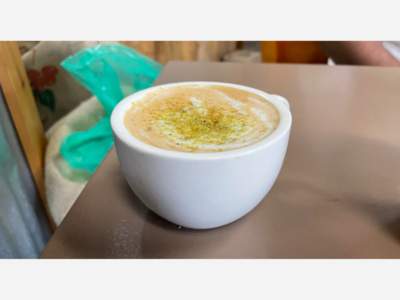Fresh Ink: The Importance of Exercise and Healthy Living for Teenagers
At the start of senior year, it’s hard not to feel overwhelmed by standardized testing, rigorous AP classes, and college applications. Coming home from extracurriculars only to sit at a desk from 4 PM to 11 PM can’t be healthy for teenagers at such a critical time in our development. Yet, in a competitive school district like WWP, it’s difficult to find a balance between work and well-being. While I like to think I’m productive during most of that time, the reality is different. The breaks I take to scroll on my phone, doodle in my notebook, or text friends, add up quickly. It wasn’t always this way—when I was younger, I spent much more time outside. Now, the older I get, the less time I have for physical activity. Many of my peers have even quit team sports to focus more on studying. While it’s not necessary to give up physical activities altogether, it’s crucial for both myself and others my age to maintain healthy habits and proper nutrition to retain energy and stay focused. Whether you’re a teenager or someone who finds themselves buried in work, here are some tips to maintain a healthy lifestyle.
The effects of physical inactivity in high school are significant, with only 1 in 4 students meeting the recommended hour of daily exercise. Physical health is inherently linked to mental well-being; studies have shown that regular physical activity can improve mood and reduce anxiety. In an age dominated by social media and technology, it's easy to get caught up in distorted realities. Spending time outside can ground us and remind us of the bigger picture. Even getting steps in around the house—like tidying up our workspaces—can be beneficial. Research indicates that a clean environment is often correlated with a clear mind, reinforcing the connection between physical space and mental clarity.
If you find yourself to be a workaholic like me, there are ways to incorporate exercise into your routine. For example, I memorize AP US History (spell it out) dates while doing core workouts, clean my room while practicing speeches for debate club, and listen to audiobooks during walks—the possibilities are endless. If prioritizing physical activity is truly important to you, there are ways to make time for it. Even a little movement counts, as studies show that individuals who remain sedentary can lose dexterity and flexibility over time. The pandemic has contributed to what many refer to as "pandemic stiffness," but it has also sparked a fitness craze. Embracing small bursts of activity throughout the day can help combat these challenges and improve both physical and mental well-being.
While encouraging physical activity is important, it's equally vital to approach it in a healthy manner and practice sound dietary habits. It's easy to get caught up in medically unproven methods like calorie counting; however, to maintain optimal energy levels, we must focus on nutritious eating. Of course, as a 17-year-old, I'm not a dietician, so finding the right diet for you is a personal journey that requires exploration and consideration of various factors. Prioritizing whole foods, balanced meals, and proper hydration can significantly impact both physical performance and overall well-being.
A note to schools: you can do better. Consider implementing outdoor classrooms, like those at Millstone and Community. Before the weather gets chillier, let's make the most of the opportunity to be outside. It won't be long before the temperatures drop, and we'll find ourselves wishing for days like these to return. Embracing outdoor learning and living can enhance both students' well-being and their engagement in the curriculum.









